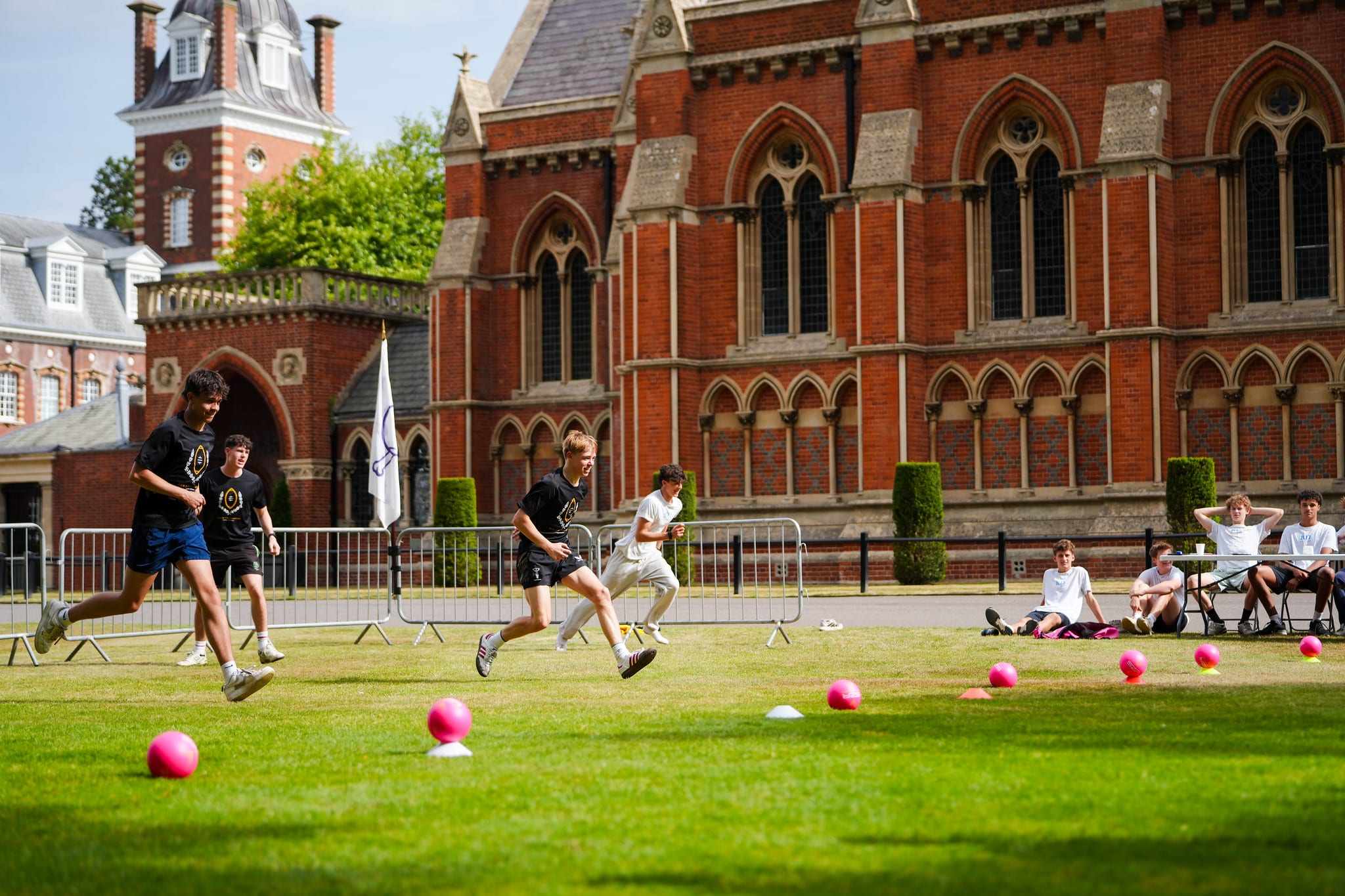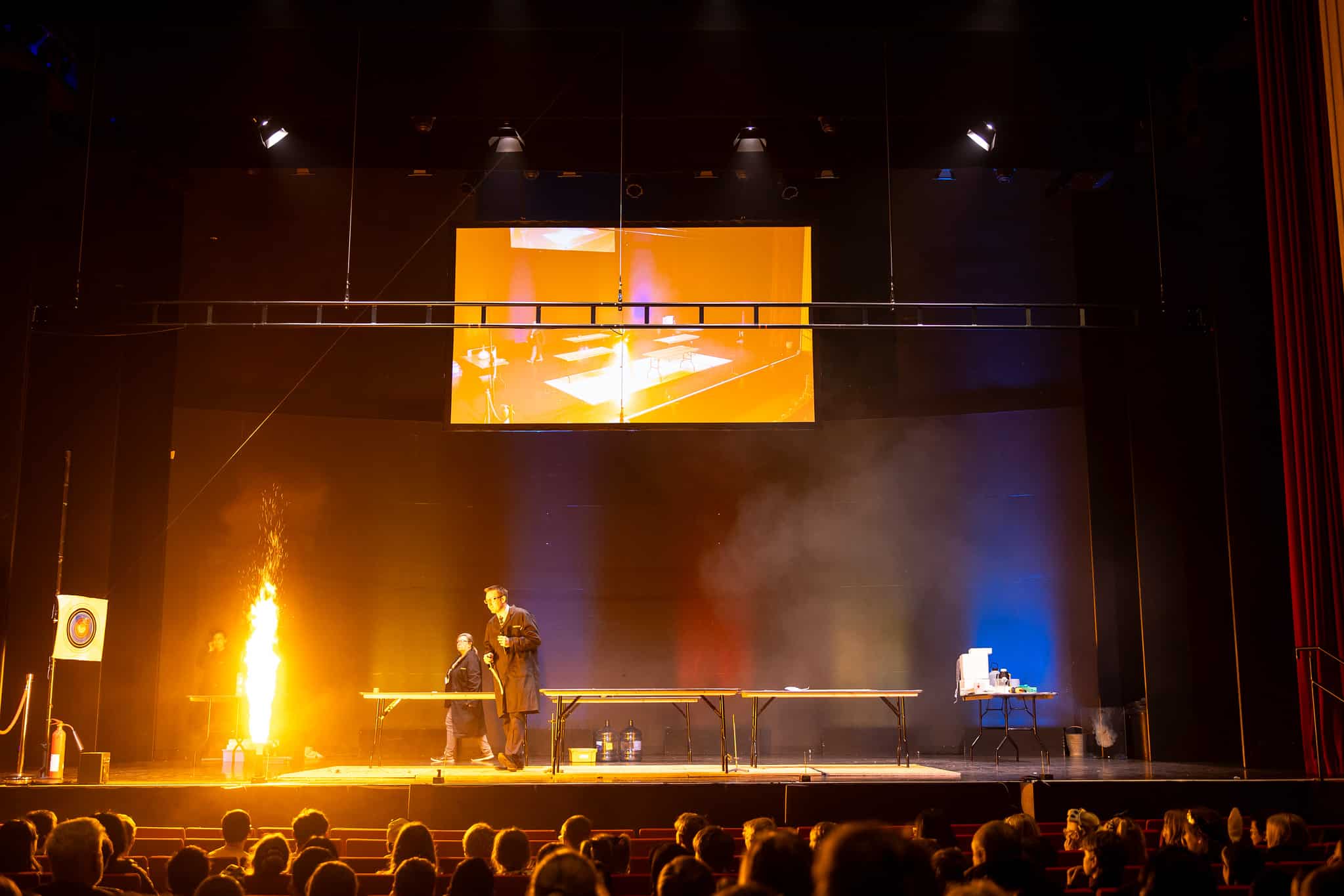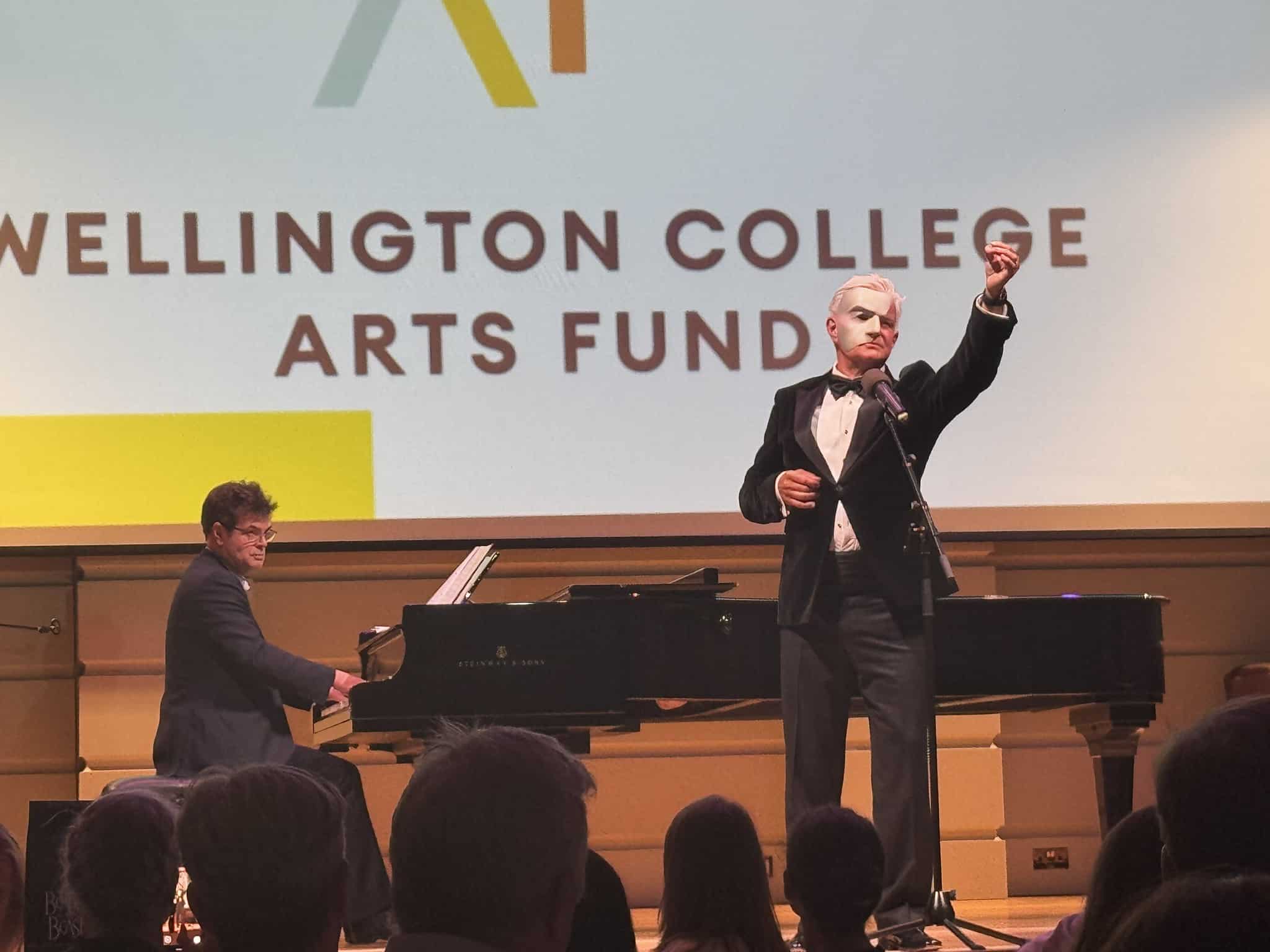
In the world of education, there are few inspirational events as eagerly anticipated and celebrated as the Chemistry Spectacular. Now, as we mark its 30th edition, this event stands not only as a tribute to the unwavering dedication of our Chemistry department but also as a celebration of the enduring enchantment of science education. Dr Julian O’Loughlin, who has been involved in the Chemistry Spectacular since its beginnings, shares insights into the evolution and essence of the event.
“Back in 2011, the Chemistry Spectacular began as a humble roadshow, constrained by logistical challenges and limited audience sizes. Nonetheless, even in its early days, the show garnered immense popularity. However, by inviting schools to Wellington, we were able to host the show in the Christopher Lee Theatre, unleashing the full potential of our experiments to captivate audiences of up to 300 students, often running two shows back to back. This year marks our first show in the GWA, and with 1000 pupils, it’s our biggest one yet. What a way to celebrate the 30th running of the show!
One of the enduring favourites among our repertoire of experiments is the iconic Barking Dog demonstration. With roots dating back to the 17th century, its timeless appeal lies in the awe-inspiring spectacle of a blue flame dancing down a glass tube, accompanied by an uncanny barking sound. We were given the big glass tube by a glassblower about 10 years ago, and I have no idea where we’d get a replacement from if we ever broke it. It’s the most precious piece of equipment in the department. The whimsical chaos of the ping pong ball finale adds a touch of joviality, leaving both us and our audience in fits of laughter amid the ensuing mayhem.
We had to think carefully about which experiments would work in the GWA and cut out a few that were just a bit too small. We omitted smaller-scale experiments in favour of those conducive to engaging even the farthest reaches of the audience, such as launching rockets from the upper tiers. The main message is that I hope students go away with the idea that Chemistry can be fun, it’s all explainable and predictable (there’s no magic), and the fundamental things that they learn in science, like being able to repeat experiments and being able to measure things out accurately, still apply even on a bigger scale. It’s about opening their eyes and lighting that fire of enthusiasm. I hope they take that away with them and bring it back to their science lessons.
Chemistry can sometimes be dangerous, and some equipment is hard to get hold of, so it’s nice that students can come and see things with us that they might not be able to do at their schools. We often get asked for our recipes or instructions and are always happy to share what we do. It’s great to hear of schools doing some of the experiments as part of a project or an investigation. There’s loads of science that can be done with most of the experiments – the ping pong ball experiment has been used by volcanologists to estimate the power of a volcanic explosion by working out how far the ping pong balls travel!
My advice to others setting up their own show is to practise, practise, practise so you know the experiment inside out. Things do sometimes go wrong, and knowing how to recover it (or abandon it!) is very useful. Also, seeing what it looks and feels like from the back of the hall is important. When you’re right next to it, it’s always “wow,” but from the back, it might not quite look the same. We have so much fun doing the shows that we sometimes forget that we need to make it look good from the audience. I have been guilty of standing in the way at times!
But if anyone is doubting whether it is worth doing, just look at the faces of the students as they leave. They’re grinning from ear to ear, and simply hearing “That was so cool” just makes me want to do it all again.”
Guilty or not, we congratulate Dr O’Loughlin, Caroline Evans and the rest of the Chemistry Department for setting up the show, and join with hundreds of budding chemists in thanking them for bringing Chemistry alive in such a spectacular way.









